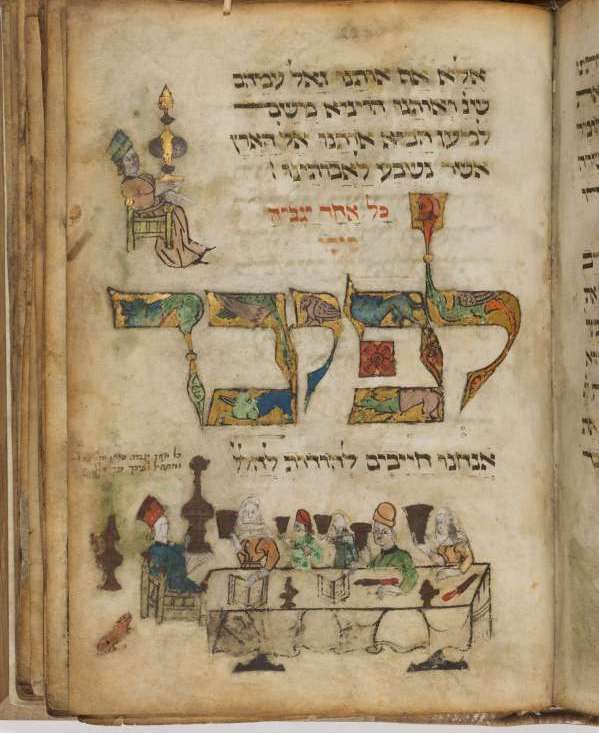The Passover Haggadah is a central text in Jewish tradition, read during the Seder night to commemorate the Exodus of the Israelites from Egypt. The word “Haggadah” means “telling” in Hebrew, signifying the act of retelling the story of liberation as commanded in the Torah: “You shall tell your son on that day, ‘It is because of what the LORD did for me when I came out of Egypt'” (Exodus 13:8). This act of storytelling is not limited to historical recollection; it is meant to bring the experience of divine deliverance into the present for every generation.

The Haggadah, first composed during the first century CE, has evolved over time, incorporating additions from medieval and later traditions. It includes various elements such as blessings, songs, prayers, and symbolic rituals that emphasize themes of freedom, gratitude, and hope. One notable aspect of the Haggadah is the emphasis on individual involvement. The saying, “In every generation, one must see himself as if he has gone out of Egypt,” transforms the narrative into a personal and present-day experience.
Furthermore, the Hebrew verb form used in the command “to tell” (le-Hagid) often appears in the Bible in contexts of revelation or discovery. This highlights the Haggadah’s role as a tool for spiritual renewal, guiding individuals to reflect on both the historical and contemporary significance of redemption.
Through its rituals and recitations, the Haggadah fosters connection, continuity, and a sense of shared heritage among Jewish communities worldwide.
Useful Hebrew Vocabulary:
| Transliteration | English | Hebrew |
|---|---|---|
| Haggadah | Telling (Passover Haggadah) | הגדה |
| Pesach | Passover | פסח |
| Sipur | Story | סיפור |
| Geulah | Redemption | גאולה |
| Cherut | Freedom | חירות |
| Mitzrayim | Egypt | מצרים |
| Dor | Generation | דור |
| Sipur Yitziat Mitzrayim | The Exodus story | סיפור יציאת מצרים |
| Leil HaSeder | The Seder night | ליל הסדר |
| Masoret | Tradition | מסורת |
| Bracha | Blessing | ברכה |
| Tefillah | Prayer | תפילה |
